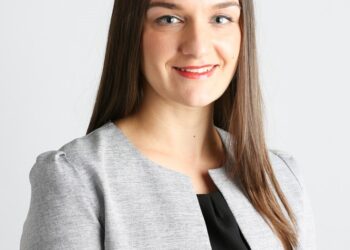Act2 Solutions SMSF technical manager Rebecca Oakes said that with a new financial year just beginning, now is a good time for SMSF professionals to start thinking about how to maximise their client’s ECPI.
“For SMSFs that have not elected to segregate their assets, having an understanding of how the actuary’s percentage is calculated as well as how and when deemed segregation applies can allow trustees to implement strategies to maximise their ECPI,” Ms Oakes explained.
When calculating ECPI under the unsegregated assets method, Ms Oakes said the actuary will take into consideration the opening balances as well as timing and amounts of any pension commencements, pension rollbacks, contributions, external transfers in non-retirement phase withdrawals and retirement phase withdrawals.
“As the actuary’s percentage is calculated on a daily weighted average, the timing and weighting of a transaction will have a bearing on the actuary’s percentage,” she said.
“Transactions that have a larger weighting in respect to the unsegregated total fund balance or occur earlier in the financial year will be more material to the actuary’s percentage compared to transactions that occur later in the year or are of a lesser amount.”
Opening retirement phase account balances, pension commencements and non-retirement phase account withdrawals, she said, can all increase the actuary’s percentage.
“The larger the opening retirement phase account compared to the opening non-retirement phase accounts, the higher the actuary’s percentage will be, assuming no pension commencements or rollbacks occur,” she stated.
“Retirement phase income streams that commence earlier in the year rather than later can also potentially increase the actuary’s percentage. Furthermore, if an SMSF intends on withdrawing a lump sum from their non-retirement phase account during the financial year, withdrawing it earlier in the year rather than later can also increase the actuary’s percentage.”
Transactions that either decrease the numerator of the actuarial percentage or increase the denominator in the actuary’s formula, on the other hand, will effectively decrease the actuary’s tax-exempt percentage.
“Opening non-retirement phase account balances, pension rollbacks, contributions, external transfers in and retirement phase withdrawals can all decrease the actuary’s percentage. How much these transactions decrease the actuary’s percentage will depend on the timing and the weighting of the transaction,” she explained.
In general, Ms Oakes said where SMSFs have an opening non-retirement phase account balance higher in value compared to the opening retirement phase income streams, this will result in a lower tax-exempt percentage, assuming there are no pension commencements or rollbacks.
“Contributions and external transfers in will increase the fund’s non-retirement phase liabilities; therefore, the earlier they occur in the financial year, the lower the tax-exempt percentage will be,” she said.
“Pension rollbacks and retirement phase withdrawals reduce the fund’s current pension liabilities, meaning they reduce the numerator in the actuary’s formula, resulting in a lower tax-exempt percentage. Therefore, the earlier the pension rollbacks and pension withdrawals occur in the financial year, the lower the tax-exempt percentage will be.”
Understanding how deemed segregation applies can also can be advantageous towards maximising ECPI, she noted.
“Where an SMSF is eligible to use the segregated method in a given financial year and there are periods during the year where the assets are solely supporting retirement phase income streams, those periods will be deemed segregated,” she explained.
“Earnings received during these deemed segregated periods will be tax-exempt under the segregated method.”
She used an example with two members of a super fund, Samuel and Sasha, to explain how the ECPI may be influenced by the timing of transactions.
“At 1 July 2019, Samuel’s entire balance of $700,000 is solely supporting an account-based pension whilst Sasha’s entire balance of $900,000 is solely supporting a transition to retirement income stream (TRIS) in non-retirement phase. The SMSF is eligible to use the segregated method for the 2020 financial year and the trustees intend to sell an investment property held by the SMSF in the 2020 financial year,” she explained.
“On 1 February 2020, Sasha will turn 65 and her TRIS will automatically convert to a retirement phase income stream. As the SMSF is eligible to use the segregated method, the trustees identify that if they remain entirely in retirement phase for the period 1 February 2020 to 30 June 2020, then the fund will be deemed segregated for that period of time. Any ordinary or statuary income received during this period will be entirely tax-exempt under the segregated method.”
If the sale of the property occurred during the deemed segregated period, then the capital gain realised would be entirely tax-exempt, she said.
“Alternatively, if the trustees choose to sell the property during the unsegregated period, then the actuary’s percentage would apply. In this example, the actuary’s percentage would be 43.75 per cent; meaning only 43.75 per cent of the capital gain realised will be tax-exempt.”


